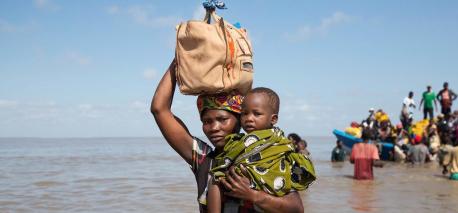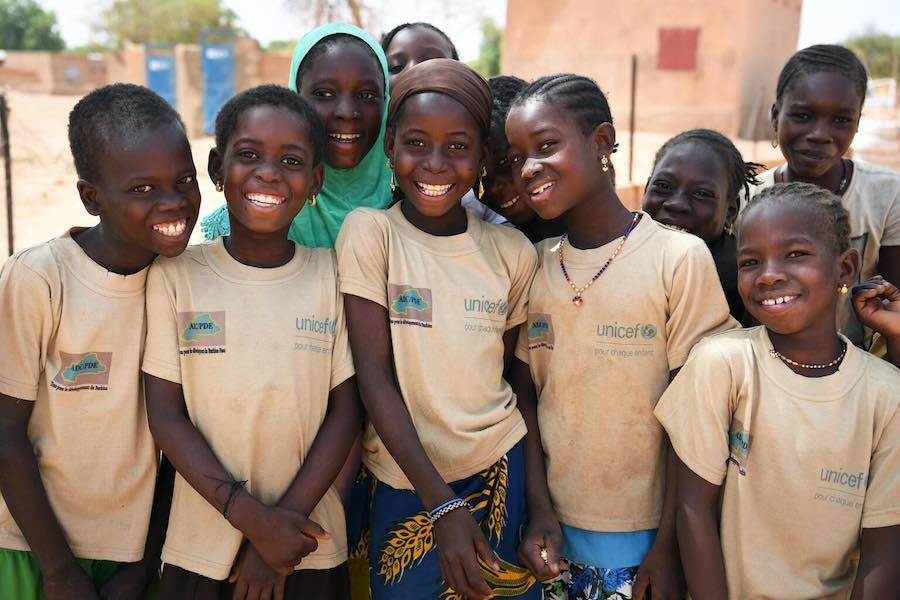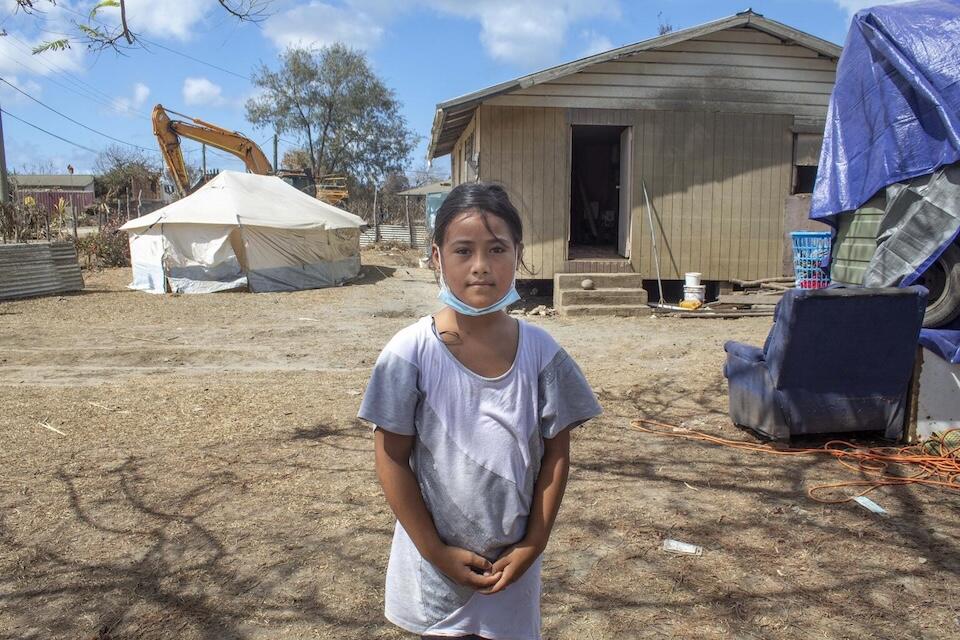
UNICEF USA Mercury Fund
The UNICEF USA Mercury Fund helps UNICEF expedite vital assistance to vulnerable children and families in an emergency — and strengthen community resilience against future disasters.
The UNICEF USA Mercury Fund provides unrestricted grant money to allow UNICEF to scale up emergency preparedness measures and disaster risk reduction activities before a crisis occurs, and to scale up response measures quickly and efficiently as emergencies unfold.
A community’s ability to prepare for and cope with a crisis can prevent catastrophe and protect the vulnerable. When a community is unprepared, the result can be massive loss of life and the undermining of decades of social and economic progress, especially for children.
There are many ways UNICEF helps communities build resilience and reduce disaster risks: by elevating water wells and latrines in cyclone-prone areas, for example, and conducting earthquake emergency mock drills for students and teachers, among other measures. UNICEF also works with government officials to help establish national emergency preparedness plans.
For every $100,000 invested in emergency preparedness, UNICEF saves $400,000 in response costs.
A fast, efficient way to channel immediate support
The Mercury Fund is also a fast, efficient way to channel immediate support when a crisis occurs. The unrestricted grant money — fund resources can be activated quickly, in under 72 hours — allows UNICEF to rapidly scale up emergency measures and reach the most vulnerable children with vital assistance, often before a crisis or the complexity of an emergency hits the news and other funding becomes available.
The Mercury Fund's impact for children and communities
From October 2021 to October 2022, UNICEF USA disbursed $1.6 million in flexible funds through the Mercury Fund to assist UNICEF's emergency response efforts — including meeting urgent needs of children and families impacted by:
- harsh winter conditions in Afghanistan
- a volcano eruption in Tonga
- conflicts in Ukraine and Burkina Faso
- drought in Somalia, Ethiopia and Zimbabwe
- floods in Bangladesh and Pakistan
Here's a closer look at a few of these and previous examples of Mercury Fund support at crucial times:
Response to the war in Ukraine: The Mercury Fund provided a timely allocation at the onset of the war in Ukraine to help UNICEF reach children and families impacted and displaced by violence with a wide range of services and assistance, including health, safe water, sanitation and hygiene support and cash assistance for the most vulnerable.

Emergency assistance in Burkina Faso: Since 2018, Burkina Faso has faced a severe humanitarian crisis, resulting from weak governance, armed conflict and multidimensional poverty; 4.7 million people — including 2.7 million children — are in need of humanitarian assistance. Political instability has further exacerbated the situation and resulted in an unprecedented acceleration of population movements, with an increase of over 206,000 additional internally displaced persons (IDPs) in only two months; many have lost livelihoods (crops, livestock and small businesses). Support from the Mercury Fund helped UNICEF replenish emergency supplies — education kits, water tanks, hygiene kits, tents — as needs were rapidly increasing on the ground.
Disaster relief: When underwater volcano Hunga-Tonga-Hunga-Ha’apai erupted violently in January 2022, triggering a nearly mile-high tsunami that devastated coastal areas of Tonga's capital Nuku’alofa and several other low-lying Tongan islands, the Mercury Fund granted funds to support UNICEF's response for impacted children and families. That response included providing safe water in advance of any disruptions in the water supply; distributing hygiene supplies to families and schools and medical supplies to health facilities; and providing nutritional supplements to prevent child malnutrition. Psychological first aid and psychosocial support were provided by 80 UNICEF-trained volunteers across five of Tonga's most populated islands.

Flood relief: In South Sudan in 2019, as flood waters submerged whole towns, destroying homes, schools and health centers and displacing hundreds of thousands of children and families, the Mercury Fund rushed a $200,000 grant to accelerate UNICEF's response. Efforts included screening and treating children for malnutrition, distributing water purification tablets and hygiene kits to prevent the spread of waterborne diseases, repairing and disinfecting water sources and conducting immunization campaigns. When torrential rains followed by landslides and massive flooding devastated entire communities in and around Gatumba, Burundi, in the spring of 2020, the Mercury Fund rushed $100,000 to help expedite UNICEF's emergency response in the area.
Containing Ebola: When one of the worst Ebola outbreaks of recent years hit the Democratic Republic of the Congo (DRC) in 2019, UNICEF USA granted $500,000 from the Mercury Fund to support critical prevention and preparedness in neighboring countries Burundi and Uganda. Efforts included developing public awareness campaigns, improving access to safe water and sanitation and appropriate hygiene practices at main entry points and strengthening surveillance of those traveling between countries.
Cyclone recovery: When back-to-back cyclones hit Mozambique — Cyclone Idai struck in March 2019, Cyclone Kenneth the following month — an estimated 1.7 million people were left food insecure, and 1 million children required humanitarian aid. That April, UNICEF USA granted $100,000 from the Mercury Fund to help expedite UNICEF's response activities with its partners on the ground, including screening children under age 5 for acute malnutrition; establishing temporary learning spaces for children whose school had been damaged or destroyed; distributing water treatment supplies and otherwise improving household water quality to prevent cholera and setting up treatment centers for cholera patients.
The Mercury Fund has also been successful in swiftly responding to catastrophic events around the world including the needs of Rohingya refugees in Bangladesh and of migrant children in Central America.
Donating to the UNICEF USA Mercury Fund allows UNICEF to continue to respond rapidly to emergencies and to ensure that disaster preparedness is embedded in all development activities. This investment will not only help UNICEF save time and money in the event of an emergency but will also build the resiliency of vulnerable populations before a crisis occurs. Donate to the Mercury Fund today.